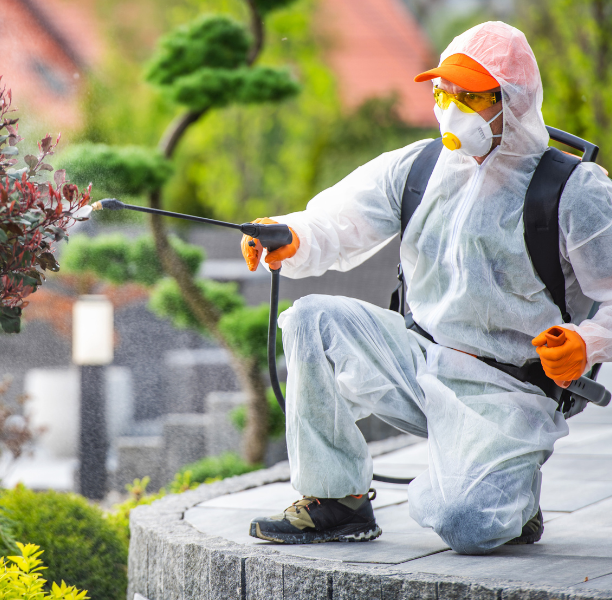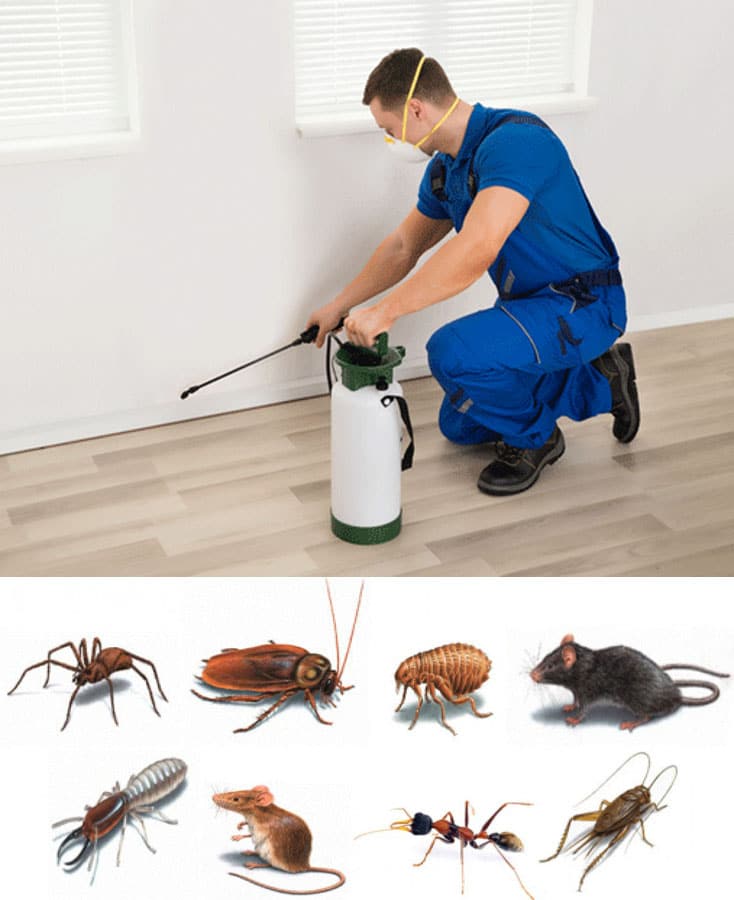Professional Wasp Control Coquitlam: Safe and Efficient Pest Removal
Professional Wasp Control Coquitlam: Safe and Efficient Pest Removal
Blog Article
Safe and Trusted Bug Control for Lasting Protection
Reliable bug administration requires a complex technique that balances ecological honesty with the requirement for effective parasite reductions. The nuances of these techniques might not be immediately clear, prompting a more detailed evaluation of the techniques that can lead to lasting insect control outcomes.
Recognizing Insect Control Methods
Parasite control includes a selection of techniques targeted at handling and eliminating undesirable insects and rats that can threaten both wellness and residential property. Understanding these approaches is important for effective bug monitoring.
The primary groups of pest control techniques include mechanical, biological, and chemical strategies. Mechanical methods entail physical barriers and traps to protect against insect access and capture undesirable types. As an example, using screens on home windows or using sticky traps can dramatically reduce insect populaces without introducing damaging materials.

Chemical pest control is frequently the most recognized method, making use of pesticides to remove parasites. These chemicals can be effective but should be used with caution to stay clear of damaging results on non-target varieties and the setting.
Advantages of Eco-Friendly Solutions
Just how can green options transform insect control practices? The fostering of green bug control techniques provides numerous advantages, substantially improving the effectiveness and safety and security of bug management (exterminator coquitlam). These options utilize all-natural components, reducing the dependence on hazardous chemicals that can posture risks to human wellness and the atmosphere. This change not only shields households and pets however also lessens the potential for soil and water contamination.

One more advantage is the positive influence on regional biodiversity. Environmentally friendly remedies are developed to target details pests while maintaining helpful bugs and wild animals, promoting a balanced ecological community. This method aligns with the growing consumer need for sustainable practices, improving the track record of parasite control providers.
Integrated Pest Management Strategies
The implementation of environment-friendly options naturally leads to the fostering of Integrated Parasite Monitoring (IPM) methods, which further enhance pest control efficiency. IPM is an all natural technique that integrates multiple methods to take care of parasite populations while reducing ecological influence. This technique emphasizes the usage of organic, cultural, mechanical, and chemical controls, ensuring a balanced and lasting technique of pest monitoring.
One essential aspect of IPM is the thorough analysis of insect task and ecological conditions. By checking bug populations and recognizing their life cycles, practitioners can implement targeted treatments that disrupt the bug's habitat or lifecycle, lowering reliance on chemical pesticides. Furthermore, cultural try these out techniques such as crop turning and habitat control can significantly lessen bug establishment and recreation.
An additional important component is the use of organic control agents, such as valuable bugs or microbes, which can naturally reduce parasite populations. When chemical applications are needed, IPM prioritizes using low-risk chemicals and applies them precisely, decreasing exposure to non-target organisms and people.
Including IPM techniques not just boosts pest control efficiency however additionally advertises a safer community, straightening with the expanding demand for sustainable methods in bug administration.
Safe Practices for Home Owners
Understanding the significance of risk-free techniques in parasite control can encourage home owners to successfully handle parasite concerns while guarding their health and the environment. Executing non-toxic techniques and precautionary procedures is essential in minimizing direct exposure to harmful chemicals.
House owners ought to initially examine their atmosphere for problems that draw in pests, such as standing water, mess, and food waste. On a regular basis cleansing and securing entry points can deter bugs from invading the home. Making use of all-natural deterrents, such as crucial oils or diatomaceous earth, can offer reliable options to chemical pesticides.
When chemical therapies are essential, homeowners need to go with products that are especially identified as safe for household use. It is vital to follow application guidelines thoroughly to avoid too much exposure. Using targeted treatments in locations where insects are recognized, instead than blanket splashing, can significantly lower chemical use.
Last but not least, preserving open communication with parasite control experts is important. Homeowners should ask about the best site safety of items utilized and demand eco-friendly options whenever possible. By embracing these secure methods, homeowners can create a much healthier living atmosphere while efficiently taking care of insect problems.

Tips for Long-Term Defense
Developing a parasite management strategy that stresses long-term protection can greatly boost the efficiency of the risk-free methods previously discussed. To attain this, home owners must apply regular evaluations of their home, concentrating on concealed locations such as attics, basements, and crawl areas. Early detection of parasite task is essential in protecting against problems from holding.
These techniques reduce attractants that draw insects right into the home. Securing entry points, such as cracks around doors and windows, can effectively obstruct potential insect access.
Landscaping must additionally be thought about; maintaining plants cut and maintaining a range between greenery and the home minimizes hiding areas for pests. Making use of all-natural deterrents, such as necessary oils or diatomaceous earth, can further dissuade problems without turning to extreme chemicals.
Finally, working together with a professional pest control solution for regular examinations can provide an extra layer of protection. These experts can offer customized referrals and advanced therapies, guaranteeing that your home continues to be shielded versus insects in the long term.
Conclusion
In final thought, secure and reputable bug control requires a diverse strategy that stresses green approaches and incorporated pest management. By carrying out natural deterrents, performing routine assessments, and keeping correct hygiene, homeowner can dramatically minimize bug populaces while securing helpful bugs and the setting. Collaboration with expert pest control solutions enhances the effectiveness of these techniques, making certain customized solutions that provide lasting security and tranquility hop over to these guys of mind against future infestations.
Effective parasite monitoring calls for a multifaceted strategy that balances ecological integrity with the need for reliable parasite reductions. The fostering of green pest control methods supplies various benefits, significantly improving the performance and safety of bug administration.The execution of environment-friendly solutions naturally leads to the fostering of Integrated Bug Management (IPM) methods, which further improve bug control efficacy. exterminator coquitlam. By keeping an eye on parasite populaces and determining their life cycles, practitioners can apply targeted interventions that interrupt the pest's habitat or lifecycle, minimizing reliance on chemical pesticides.In verdict, reliable and safe bug control needs a multifaceted strategy that emphasizes eco-friendly techniques and integrated bug monitoring
Report this page